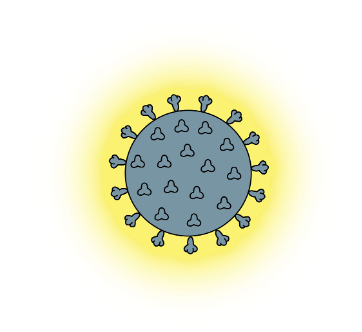Coronaviridae
Coronaviruses are a family of positive stranded RNA viruses infecting vertebrates, and possess some of the largest genomes among RNA viruses. Coronaviruses are classified to alphacoronaviruses, betacoronaviruses, gammacoronaviruses, and deltacoronaviruses, of which the first two subfamilies have members infecting humans. Viral surface proteins S, M, and E are conserved among all coronaviruses, of which the spike protein S executes receptor binding and membrane fusion, and is heavily N-glycosylated. Coronaviruses primarily target epithelial cells of the respiratory and gastrointestinal tracts, where human coronaviruses cause a variety of respiratory infections. Human alphacoronaviruses HCoV-229E and HCoV-NL63, as well as betacoronaviruses HCoV-HKU1 and HCoV-OC43 continue to circulate in the population, and cause up to 15 % of common cold cases, usually resulting in mild symptoms. However, certain strains can cause severe pulmonary disease and substantial mortality rate, as seen in SARS-CoV and MERS-CoV epidemics as well as SARS-CoV-2 global pandemic. This has often been related to cross-species transmission and viral replication in both upper and lower respiratory tracts.
